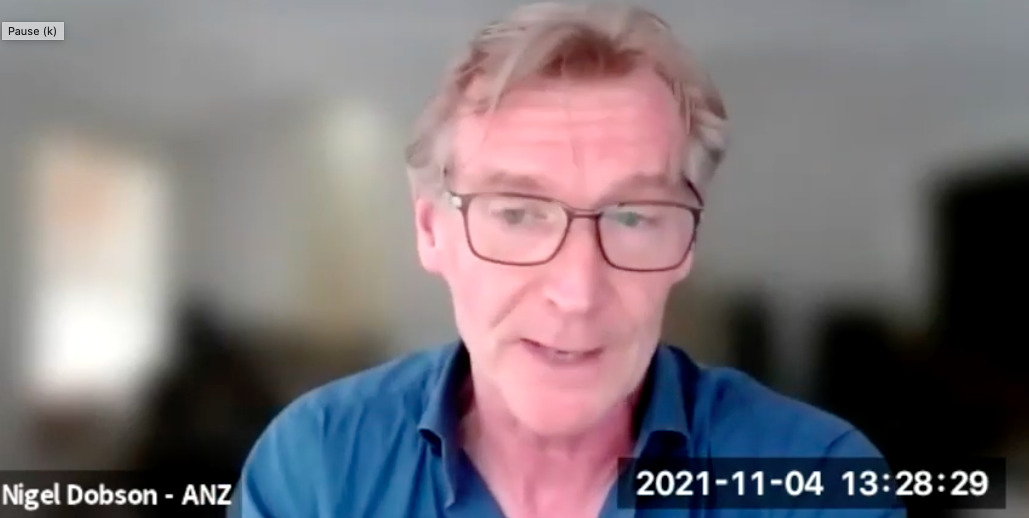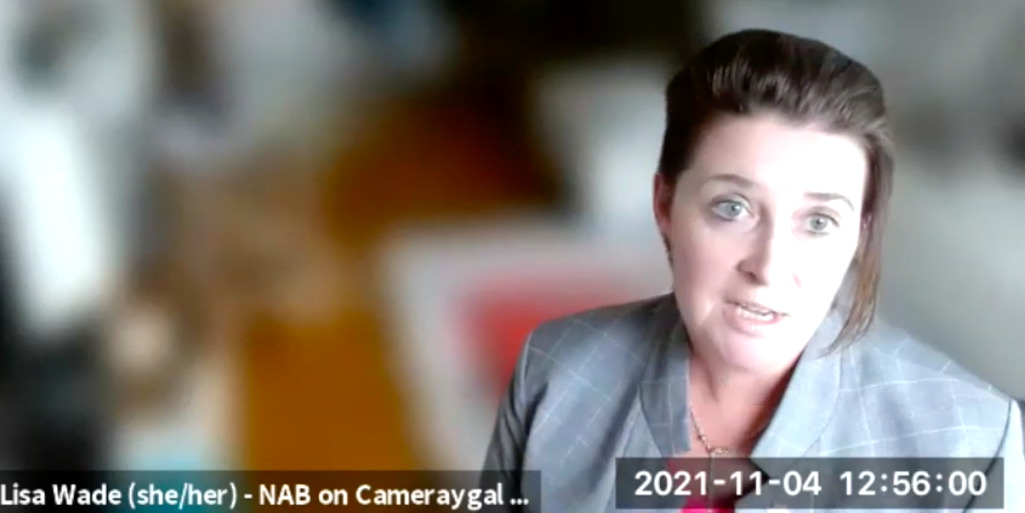‘A weight of money you simply can’t ignore’: ANZ banker on the crypto and DeFi revolution

ANZ Bank’s banking services portfolio lead Nigel Dobson has described the Commonwealth Bank Australia (CBA) crypto move this week as “bold” but just the beginning of a major financial shift.
Dobson was speaking as part of a fintech and financial services webinar event on Thursday called State of Play, organised by Blockchain Australia and hosted by the peak industry body’s CEO Steve Vallas.
If you haven’t heard, CBA made world headlines earlier this week, announcing a partnership with Cameron and Tyler Winklevoss’ Gemini Exchange and blockchain analysis firm Chainalysis to offer a crypto exchange and custody service for its Commbank users.
As reported by Stockhead, CBA will provide its 11 million+ customers with access to up to 10 selected crypto assets: Bitcoin, Ethereum, Bitcoin Cash, Litecoin, Uniswap, Chainlink, Polygon, Filecoin, Aave and Compound.
Today we hosted the 'State of Play' with over 1200 registrations and speakers from some of Australia's most recognisable businesses.
The conversation signalled very clearly that a revolution in payments is on our doorstep. pic.twitter.com/S32Vc4KToO
— Digital Economy Council of Australia (@DECAustralia) November 4, 2021
The financial world is ‘moving to a more decentralised system’
In reference to the CBA’s “bold” move, as well as decentralised finance (DeFi) and digital assets more broadly, ANZ’s Dobson suggested it’s the beginning of a new era in finance that traditional sectors will need to assess and potentially embrace or adapt to.
“There is a weight of money you simply can’t ignore,” said Dobson. “We have concluded that this is a major protocol shift for financial market infrastructure.
“We are moving to a more decentralised system – arguably faster, cheaper, better (yet to be proven) – that can generate new outcomes and business models that can’t be ignored. If that’s the thesis – that these new protocols can generate better outcomes and new business models, then they can’t be ignored. We’re excited about them because they resemble, in many cases, financial markets.”

The ANZ banker also said that, with regards to blockchain and DeFi, he thinks the financial world faces a phase of change similar to 25 years ago, “when internet protocols started transforming business, including banking eventually”. A global move towards a digital-asset economy is “completely going to occur”, he believes.
Will banks integrate with already established DeFi protocols?
“As much as banks didn’t invent TCP IP, we’re not inventing these new protocols either,” Dobson continued. “But we are managers of risk – operational risk and market risk, credit risk – and we believe that’s where we have an ongoing right to play.
“The preferences of our customers may lead us to places where we feel uncomfortable… but the ship has sailed… so what we need to do is to navigate our path towards utilising these [decentralised] networks. And the power of these networks is unquestionably strong. The power of networks transcends all companies – you just need to choose whether to be part of it or ignore it… I think we have a much stronger bias to participate than ignore.”
‘DeFi is not only on the agenda… it IS the agenda’
Speaking with Stockhead today about the State of Play event and how Australian financial services brands seem to be increasingly open to the possibilities offered by blockchain and crypto, Blockchain Australia’s Steve Vallas said that “nothing builds momentum like momentum”.
“I think the speed of announcements and interest being expressed publicly by traditional financial services has caught many off guard,” said Vallas. “But it’s consistent with what we’ve seen in less public environments.
“This subject of cryptocurrencies, DLT [distributed ledger technology] and DeFi is not only on the agenda, in many rooms it is the agenda.”

Vallas believes that Australia’s big financial brands are working hard to understand crypto and DeFi and the industry’s power to potentially transform business and business models.
“The decision by some prominent brands to bring this into the public domain reflects their confidence that they have sufficient understanding and stakeholder buy-in,” he said. “The pressure on other financial institutions to do the same will now intensify rapidly.”
NAB and Mastercard express their thoughts
Among a handful of other finance and fintech identities speaking at the event was National Australia Bank executive Lisa Wade, who believes a national central bank digital currency (CBDC) can ensure local banks remain relevant in the shifting digital economy.
Wade suggested CBDCs could provide stability amid a future where traditional financial markets embrace stablecoins.
“I do think there’s a place for stablecoins as well. I think there will be a lot of discernment in their issuance,” said Wade, before cautioning that the regulation of them is critical to ensure that appropriate collateralisation standards are met.
“If we take our eye off the ball, and big stablecoins start managing leverage treasuries… it could get really ugly, really quickly.”

Richard Wormald, Division President of Mastercard Australasia, meanwhile, spoke about the financial services giant’s recent purchase of cyber analytics company CipherTrace.
“It helps solve some of the problems like we’ve just seen with this SQUID token,” said Wormald, referencing the “Squid Game Token” rug pull from earlier this week.
“It helps monitor and understand the compliance and viability of different tokens. Imagine the CommBank team now moving into crypto… Though I think they should be congratulated for the move, which of the 900-odd tokens are they going to put on the platform for retail consumers to buy and sell?”
Wormald suggested the CipherTrace solution will at least help solve that problem for Mastercard and that it acquired the company “because it’s much quicker to do that than try to build our own solution”.

Related Topics
UNLOCK INSIGHTS
Discover the untold stories of emerging ASX stocks.
Daily news and expert analysis, it's free to subscribe.
By proceeding, you confirm you understand that we handle personal information in accordance with our Privacy Policy.








